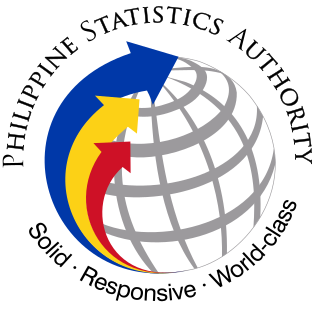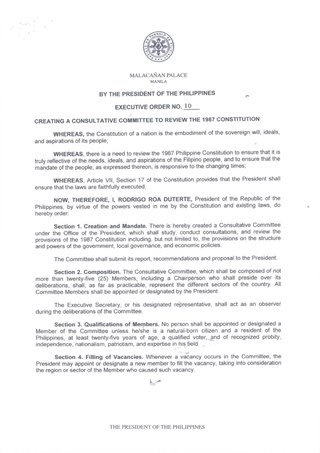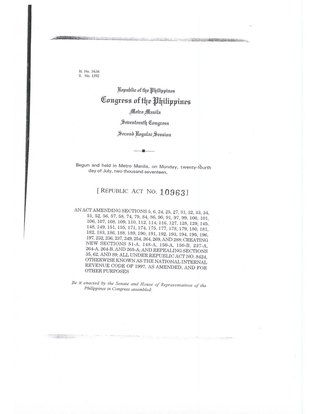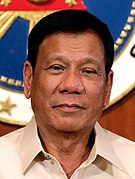
In the Philippines, provinces are one of its primary political and administrative divisions. There are 82 provinces at present, which are further subdivided into component cities and municipalities. The local government units in the National Capital Region, as well as independent cities, are independent of any provincial government. Each province is governed by an elected legislature called the Sangguniang Panlalawigan and an elected governor.

The Development Bank of the Philippines (DBP) is a state-owned development bank headquartered in Makati, Philippines.

Land Bank of the Philippines, is a government-owned bank in the Philippines with a special focus on serving the needs of farmers and fishermen. While it provides the services of a universal bank, it is officially classified as a "specialized government bank" with a universal banking license.

The Philippine Statistics Authority is the central statistical authority of the Philippine government that collects, compiles, analyzes and publishes statistical information on economic, social, demographic, political affairs and general affairs of the people of the Philippines and enforces the civil registration functions in the country.

This article covers the history of the current Philippine republican state following the 1986 People Power Revolution, known as the Fifth Philippine Republic.

Rodrigo Roa Duterte, also known as Digong, Rody, and by the initials DU30 and PRRD, is a Filipino lawyer and politician who served as the 16th president of the Philippines from 2016 to 2022. He is the chairperson of PDP–Laban, the ruling political party in the Philippines during his presidency. Duterte is the first president of the Philippines to be from Mindanao, and is the oldest person to assume office, beginning his term at age 71.
Constitutional reform in the Philippines, also known as charter change, refers to the political and legal processes needed to amend the current 1987 Constitution of the Philippines. Under the common interpretation of the Constitution, amendments can be proposed by one of three methods: a People's Initiative, a Constituent Assembly or a Constitutional Convention.

The Securities and Exchange Commission is the agency of the Government of the Philippines charged with the registration and supervision of corporations and securities, as well as capital market institutions and participants, in the Philippines. As such, the Commission champions investor protection in the Philippines, as part of its mandate.

The Revised Penal Code contains the general penal laws of the Philippines. First enacted in 1930, it remains in effect today, despite several amendments thereto. It does not comprise a comprehensive compendium of all Philippine penal laws. The Revised Penal Code itself was enacted as Act No. 3815, and some Philippine criminal laws have been enacted outside of the Revised Penal Code as separate Republic Acts.

Internet in the Philippines first became available on March 29, 1994, 10:18 a.m., with the Philippine Network Foundation (PHNet) connecting the country and its people to Sprint in the United States via a 64 kbit/s link. As of February 2023, there are 85.16 million internet users in the country, where internet penetration stood at 73.1% of the total population.

The Philippines–United States relations refers to the bilateral and diplomatic relations of the Republic of the Philippines and the United States of America. The relationship between the United States and the Philippines has been historically strong; often described as a "special relationship," originating from the fact that the Philippines was a colony of the United States between 1898 and 1946. The former Philippine president Rodrigo Duterte, however, was supportive of a foreign policy that was less dependent on the United States, favoring one that prioritized closer relations with China and Russia, despite the Philippines and the U.S. having a mutual defense treaty dating from 1951 to the present. In 2014, the countries signed an enhanced defense cooperation agreement that began its first phase of implementation in 2019.
The Constitution of the Philippines is the constitution or the supreme law of the Republic of the Philippines. Its final draft was completed by the Constitutional Commission on October 12, 1986, and ratified by a nationwide plebiscite on February 2, 1987.

The Philippine Overseas Employment Administration was an agency of the government of the Philippines responsible for opening the benefits of the overseas employment program of the Philippines. It is the main government agency assigned to monitor and supervise overseas recruitment and manning agencies in the Philippines. The POEA's office is located at EDSA corner Ortigas Avenue, Mandaluyong, Philippines.

Erico Aristotle Cabagnot Aumentado, also known in Bohol as Aris, is a Filipino businessman and politician. He was a member of the House of Representatives, representing the second district of Bohol. He is the Governor of the Province of Bohol, assuming office on June 30, 2022.
The following are the events in related to Philippine law in 2016. This includes developments in criminal investigations of national notability.

Rodrigo Duterte's six-year tenure as the 16th President of the Philippines began on June 30, 2016, succeeding Benigno Aquino III. He was the first president from Mindanao, the first president to have worked in all three branches of government, and the oldest to be elected. He won the election amid growing frustration with post-EDSA governance that favored elites over ordinary Filipinos. His tenure ended on June 30, 2022.

Executive Order No. 10 was signed on December 7, 2016, by Philippine President Rodrigo Duterte which created a consultative committee to review the 1987 Constitution of the Philippines. The move officially set in motion the process for amending the 30-year-old charter and set up a federal system of government in the Philippines aimed at ending the Moro conflict and further opening up of the Philippine economy.

The Tax Reform for Acceleration and Inclusion Law, officially designated as Republic Act No. 10963, is the initial package of the Comprehensive Tax Reform Program (CTRP) signed into law by President Rodrigo Duterte on December 19, 2017.
The 2024 Philippine political crisis is an ongoing political crisis in the Philippines caused by President Bongbong Marcos and his allies' efforts to amend the Constitution of the Philippines.


















